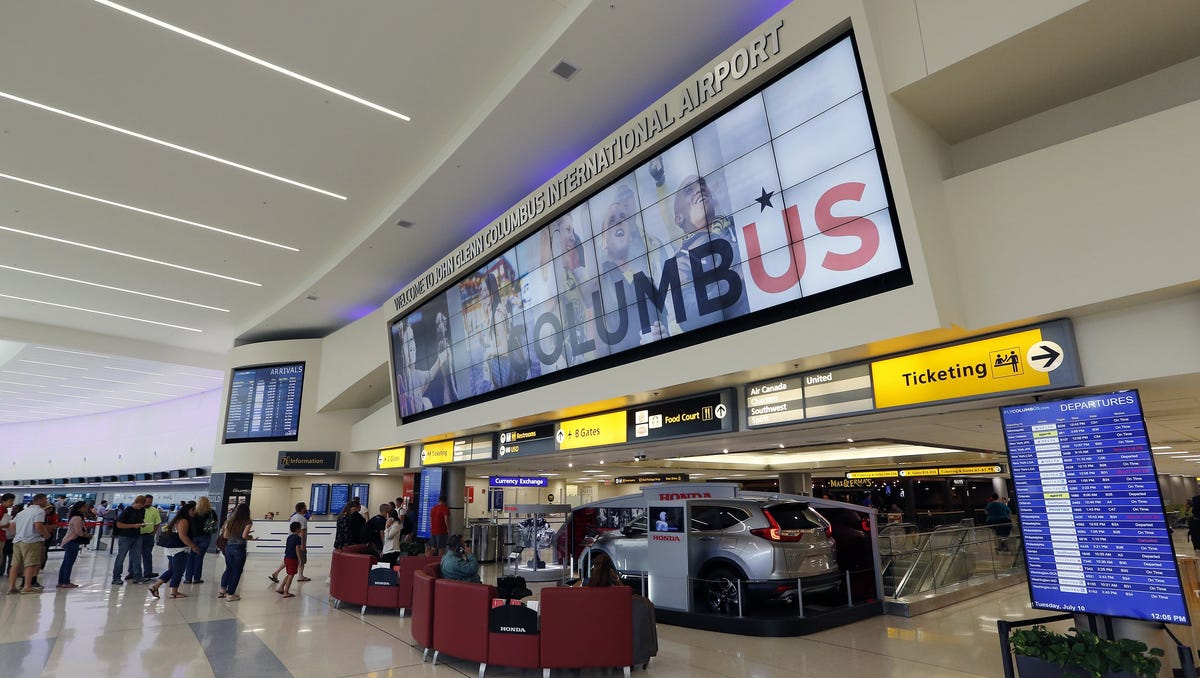World
Padres’ catcher honors grandfather’s World War II achievements

Retired Army Chief of Staff Eric Shinseki, left, presented San Diego Padres catcher Kyle Higashioka with a replica of the Congressional Gold Medal on July 22, 2024, which was awarded to Nisei Soldiers to honor their contributions during World War II. Higashioka is the grandson of Army veteran G. Shigeru Higashioka who served in the 442nd Regimental Combat Team and 100th Infantry Battalion during the conflict.
VIEW ORIGINAL
WASHINGTON — San Diego Padres catcher Kyle Higashioka still keeps a picture of himself and his grandfather.
In the photo, Higashioka as a child stands next to his grandpa, U.S. Army World War II veteran G. Shigeru Higashioka, on a sunny day in Southern California.
The Army veteran died Sept. 27, 2004, at the age of 88. But Higashioka, 14 at the time, didn’t know the full extent of his grandfather’s achievements. Through the help of the National Veterans Network, the eight-year Major League Baseball player soon learned the significance of his grandfather’s years in the Army.
On July 23, 2024, Higashioka accepted a replica of the Congressional Gold Medal from former Army Chief of Staff, retired Gen. Eric Shinseki at the National Museum of the U.S. Army at Fort Belvoir, Virginia. The ceremony honored the efforts of Shigeru Higashioka as well as the contributions of other Nisei Soldiers, or second generation Japanese American Soldiers who served in World War II.
“To have somebody in my family acknowledged like that, it gives you a sense of pride,” said Higashioka, who recently climbed San Diego’s depth chart to become the Padres’ starting catcher. “Just to know that somebody in your family did something great at a pivotal point of our history, it’s pretty cool.”
The 100th, 442nd and Military Intelligence Service were originally awarded the Congressional Gold Medal during a ceremony in 2011.
Shinseki’s three uncles earned the honor as a member of the 100th Infantry Battalion and 442nd Regimental Combat Team, one of the most decorated regiments in U.S. military history. The National Veterans Network partnered with the MLB Players Trust to coordinate the medal ceremony presentation.

The Shigeru family, from left to right: the late World War II veteran G. Shigeru Higashioka; now San Diego Padres pitcher, Kyle; Kyle’s brother; and father Ted.
VIEW ORIGINAL
Relocation and answering the call to duty
After the Japanese attack on Pearl Harbor in 1941, the U.S. government ordered 120,000 Japanese Americans to be transferred to internments camps throughout the western United States. The government moved Shigeru’s parents and brothers from their home in Monterey County, California, to Poston Relocation Camp, about 170 miles west of Phoenix.
Shigeru at the time took college courses at Tulsa University in Oklahoma.
Despite his family’s forced relocation, Shigeru chose to enlist. The Army assigned Shigeru to train with the 100th Infantry Battalion, the first battalion of the newly-formed 442nd Regimental Combat Team, comprised of Soldiers of Japanese descent from Hawaii and the mainland U.S.

San Diego Padres catcher Kyle Higashioka, a descendant of World War II veteran G. Shigeru Higashioka, toured the National Museum of the U.S. Army in July to honor his grandfather’s service and the sacrifices of other Nisei Soldiers.
VIEW ORIGINAL
“Something that always struck me was the Japanese Americans willing to still fight for the U.S. even after their families were interned in the camps,” said Higashioka, who is half Japanese. “So, I think there’s just such a strong willpower to prove themselves, and it’s something I’ve drawn some inspiration from.”
In April 1944 Shigeru joined the 100th Infantry Battalion to fight their way north from Anzio, Italy.
Shigeru joined a reconnaissance patrol in the French town of Biffontaine on Oct. 22, 1944. There, a wave of enemy gunfire pinned and trapped Shigeru and members of the 100th. A U.S. assault unit arrived to protect Shigeru’s men but soon became overwhelmed by the enemy artillery.
Shigeru and members of the patrol countered by diverting the enemy and returning the enemy’s fire. Shigeru’s actions that day earned him a Bronze Star.
Many men like Shigeru willingly answered the call to enlist, Kyle said.
“I can’t even imagine myself or anybody doing that today, where … people are jumping at the chance to fight for their country,” Kyle said. “It was just a different time. People volunteered for that. So I have a huge respect for anybody who’s fought for our country, but especially in World War II.”
Kyle said toward the end of his grandfather’s life, he asked him about the war. But he later learned more about his grandfather’s service from his dad and aunt, including the rescue of the Lost Battalion and battles in Italy and France.
Shigeru and other Nisei Soldiers also took part in the rescue of the Lost Battalion, a Texas National Guard unit trapped in the forests near the Vosges Mountains in Eastern France. About 6,000 German troops surrounded the Guard members. Through rugged terrain and difficult conditions, the Nisei Soldiers rescued the unit.
Because of its size and time in service, the 100th and 442nd eventually earned the distinction of becoming one of the most highly decorated units in U.S. military history, according to the National Veterans Network.
Prior to joining San Diego, as a member of the New York Yankees Kyle formed a partnership with the Florida-based Special Operations Warrior Foundation. The foundation honors the families of special operations troops and all Medal of Honor recipients by providing scholarship and financial assistance to their children. The organization also supplies monetary aid to wounded or hospitalized Special Forces veterans.
Kyle donated signed memorabilia to be auctioned off in fundraisers for the foundation which supports Soldiers, Airmen, Marines and Sailors in Special Forces.
“I’ve learned so much from them that’s helped me with my career,” Higashioka said. “I felt pretty strongly about giving back to that community.”
A traveling exhibit “I Am an American: the Nisei Soldier Experience,” which chronicles the lives and journey of the Nisei Soldiers is set to begin at the Presidio Military Intelligence Service Historic Learning Center in San Francisco in February 2026. The traveling exhibit will be presented by the National Museum of the United States Army, National Veterans Network and The Army Historical Foundation.
The exhibit will travel to 11 U.S. cities over a five-year period to commemorate the service of the 100th Infantry Battalion and the 442nd Regimental Combat Team and Military Intelligence Service.
RELATED LINKS:
Nisei descendant, MLB catcher receives Congressional Gold Medal on behalf of grandfather at NMUSA









